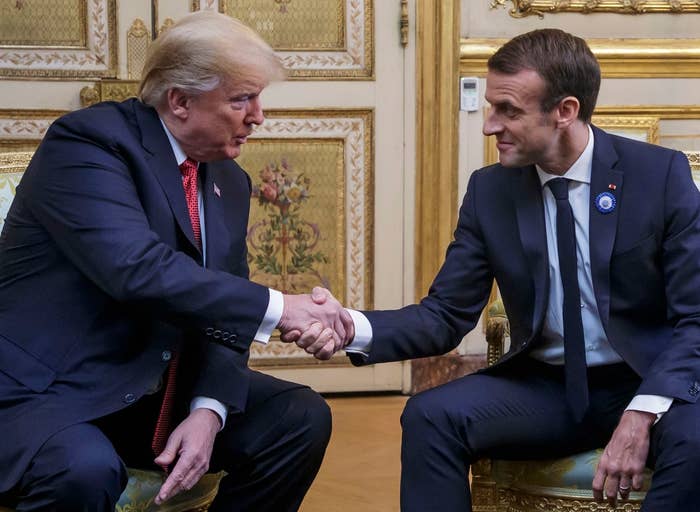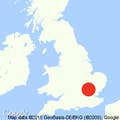
LONDON — French President Emmanuel Macron doesn’t want this year’s G7 summit to adopt formal conclusions if differences on trade and climate change with Donald Trump are too great.
If Macron gets his way, it would be the first time in the history of the G7 that a summit, which brings together the leaders of Germany, France, Italy, the UK, the US, Canada, and Japan, as well as the European Union, ends without a joint leaders’ statement.
The French president’s intention was communicated to the other G7 members by Macron’s emissary and lead negotiator at major international summits — known as a sherpa — at a meeting in Lille, France, in April, according to a diplomatic note of the meeting seen by BuzzFeed News.
During the meeting, the senior French official explained that Macron, who is hosting this year’s G7 in Biarritz, France, in August, would instead prefer a “Chair's Summary” that took stock of the wide-ranging discussions and concrete action to address global challenges debated during the G7 process, rather than spend time endlessly haggling over the drafting of a final communiqué.
Trump has consistently found himself at odds with other G7 countries on key issues ranging from trade and women’s rights to climate change, including on the fundamental multilateral principles that have underpinned the world order since the end of World War II.
At his first G7 summit in Italy, Trump was alone in not committing to the fight against climate change, while at last year’s meeting in Canada the president disavowed a compromise statement via a tweet sent from Air Force One hours after it was agreed, upset at something Canadian Prime Minister Justin Trudeau had said during a press conference closing the event.
France’s tough stance at the April meeting wasn’t well-received by all. It led to a lively exchange among the meeting’s participants, in particular with the German sherpa who was told that any concerns should be raised directly by Chancellor Angela Merkel with Macron. Berlin is keen to avoid any backtracking on formal commitments made by the G7 in the past two years since President Trump assumed office.
Global summits Trump has participated in have been packed with undiplomatic moments and exhausting negotiations with uncomfortable compromises for all involved. The US has, at times, given ground too.
A senior diplomat from a G7 state told BuzzFeed News that Macron’s decision was more a reflection of lack of focus in the French presidency’s management of the process. “The approach to defining objectives, priorities, and deliverables is very abstract,” said the diplomat.
Another official, however, said, “This [decision] does not mean France will not try to get the US on board, just that they are not willing to pay any price for this.”
Japan, which is hosting this year’s G20 meeting in Osaka, also raised concerns about Macron’s strategy, the diplomatic note states, pointing out that without a G7 communiqué it would be more difficult to coordinate between the two summits.
During the G7 preparatory meeting in Lille, there was a consensus on matters to bring to the leaders’ table relating to biodiversity and protecting oceans, as well as fighting distortive trade practices, and intellectual property. But the usual differences between the US and everyone else — on World Trade Organization reforms; inequality, which is a key focus of this year’s G7; and climate change — were once again evident.
On dealing with the climate crisis, the French sherpa presented what Macron hopes will be one of the main tangible outcomes of the summit: an initiative focused on improving the efficiency of refrigeration that aims to reduce hydrofluorocarbons (HFCs). But the US side questioned whether the G7 was the right forum to debate HFCs, diplomats said.
Much of the meeting was dedicated to development in Africa with work centered on two strands: a “partnership with Africa” — comprising continent-wide efforts to promote greater transparency and anti-corruption, women’s entrepreneurship and digitalization — and a “Sahel initiative” focused on development in the region.
During the discussion, the US sherpa, Trump’s third diplomatic emissary in as many summits, noted that setting standards and targets to link to funding projects in Africa will also be a topic of interest for next year’s G7, which the US is hosting.
Representatives from several African countries, including Egypt, Rwanda, Senegal, South Africa, and Burkina Faso, attended the discussion, and their respective leaders will be at the G7 summit that takes place in Biarritz Aug. 24–26.
The French government was approached for comment.

